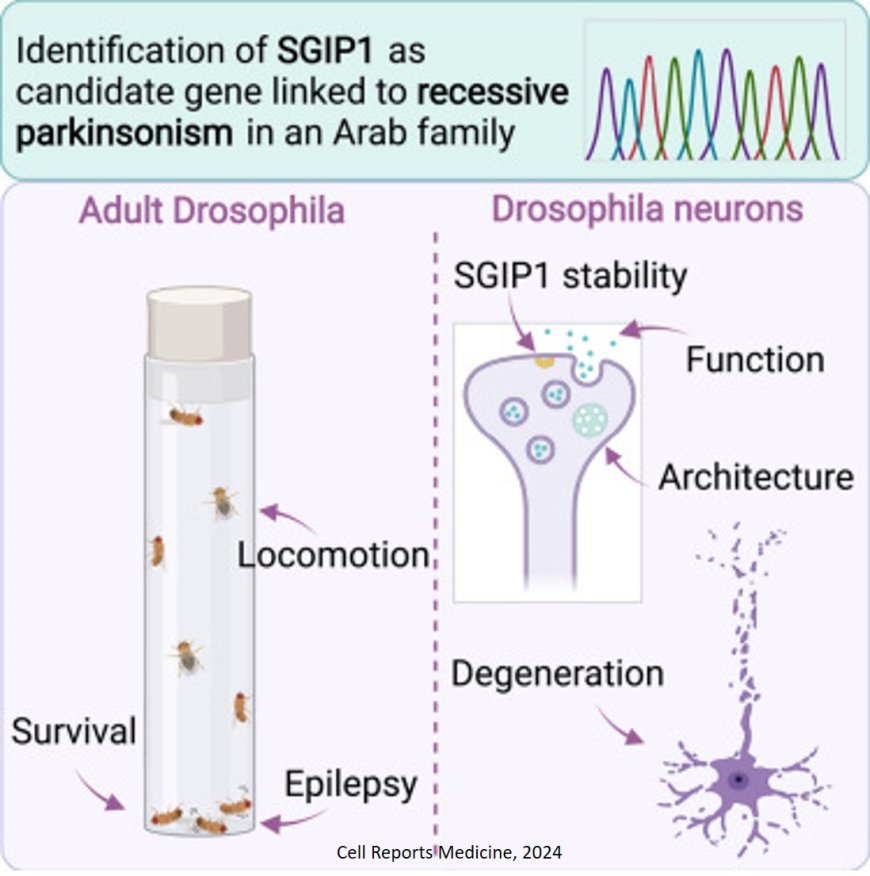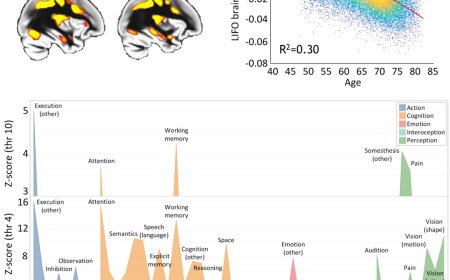New mutation linked to early-onset Parkinsonism

Parkinsonism is a group of neurological disorders that share similar symptoms, including motor dysfunction and cognitive decline. It includes Parkinson's disease but also encompasses other disorders that mimic these symptoms.
The discovery began when an Omani family, whose two daughters developed severe Parkinsonism at a young age, sought answers from their neurologist. This led to the identification of a mutation in the SGIP1 gene, a gene not previously linked to Parkinsonism. Understanding how this mutation contributes to the disease required a closer look at its impact on brain function.
To investigate the mutation's role, the researchers created a model using fruit flies that lacked the SGIP1 gene. These flies exhibited symptoms similar to those seen in Parkinsonism, including movement difficulties and brain cell degeneration. Closer examination revealed that the mutation caused defects in synapses, the structures that allow brain cells to communicate.
Further analysis showed that key structures in the synapses, responsible for recycling and breaking down proteins, were missing. This disruption suggests that the SGIP1 mutation interferes with the brain’s ability to maintain healthy synapses, which may play a significant role in the development of Parkinsonism.
“This work reinforces the idea that maintaining synapse health is essential for neuron survival throughout life,” says the first author of the study. “Our findings highlight the importance of synaptic proteostasis – the balance and quality control of proteins in synapses – in protecting against neurological diseases like Parkinsonism.”
A co-author of the study emphasizes the significance of the discovery: “Finding this mutation in the SGIP1 gene is exciting because it provides a fresh perspective on how these neurological disorders develop. It's a reminder that even small changes in our genetic code can have a profound impact on brain function.”
“This is the first time we've seen SGIP1 involved in Parkinsonism, and it gives us a new direction for research,” says the author. “Future studies will be crucial to confirm these findings in other cases and to understand the broader implications of the SGIP1 mutation. Our hope is that by understanding how this mutation disrupts brain cell communication, we can aid the development of new strategies for diagnosing, preventing, and treating Parkinsonism in the future.”
https://www.cell.com/cell-reports-medicine/fulltext/S2666-3791(24)00479-8













